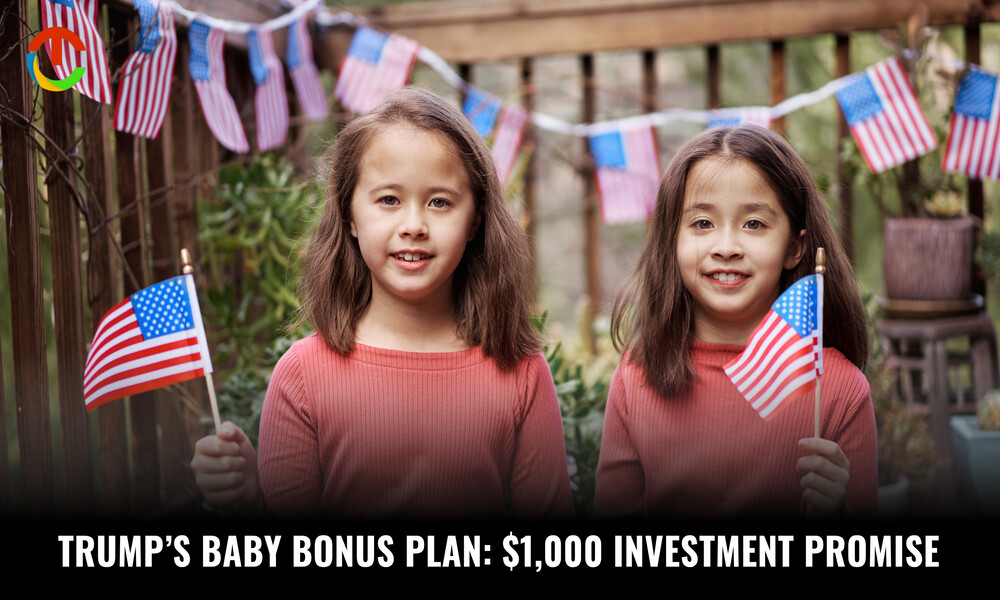Donald Trump has presented a new policy plan as a “Trump’s Baby Bonus” that has made waves across the United States: providing every newborn American infant with a $1,000 government funded investing account. The effort, he claims, is intended to provide a “financial head start” for the next generation and promote long-term savings from the moment they are born.
The announcement came during a campaign stop where Trump emphasized his goal to support American families and reframe how the government invests in its youngest citizens. The plan is part of what his team is calling a “pro-family, pro-America” strategy.
A Vision for Financial Futures
Trump’s $1,000 child investment pledge is meant to emulate comparable policies observed in countries such as the United Kingdom and Canada, where long-term government-backed savings schemes are available for kids. His version, on the other hand, has an openly patriotic tone and seeks to ensure a child’s financial stability from birth.
The plan is to place the monies in a tax-advantaged account that could expand over time through interest or investments. Access to the assets would most likely be restricted until adulthood, allowing the amount to grow into a sizable sum by the time a youngster reaches 18 or 21.
According to Trump, this is more than a symbolic gesture. “This is about giving every American child—not just the wealthy—a real shot at success,” he stated, calling it a “gift of opportunity.”
Critics Raise Concerns Over Feasibility and Funding
While some families have expressed enthusiasm, critics have called into question the practicality and sustainability of such a plan. Policy analysts and economists are asking where the funding would come from, especially given the current national debt.
Mark Stone of Sky News highlighted the challenge, noting that the U.S. already faces significant fiscal constraints. “Adding a new entitlement program could deepen financial strain unless offset by cuts or revenue increases,” Stone commented.
Meanwhile, James Matthews questioned the political motivation behind the move. “It plays well with voters, especially young families, but the path to making this a legislative reality remains murky.”
Baby Bonds or Political Strategy?
Some analysts have compared Trump’s idea to the concept of “baby bonds” floated in recent years by progressive politicians. The difference here is branding and context—Trump’s proposal is positioned as a populist, nationalist investment rather than a redistributive welfare strategy.
Martha Kelner noted that while the plan is “light on details,” its emotional appeal could sway voters in key battleground states. “It’s not just about the dollars – it’s about signaling care for the American family unit,” she said.
As the election cycle heats up, Trump’s baby bonus may prove to be a defining talking point, sparking both admiration and scrutiny. Whether it materializes into law or remains a campaign concept, it has undeniably thrust the conversation around generational wealth and government responsibility into the spotlight.
Read CIO Times proudly presents our latest edition: Top 5 Empowering Women Leaders to Follow in 2025!




